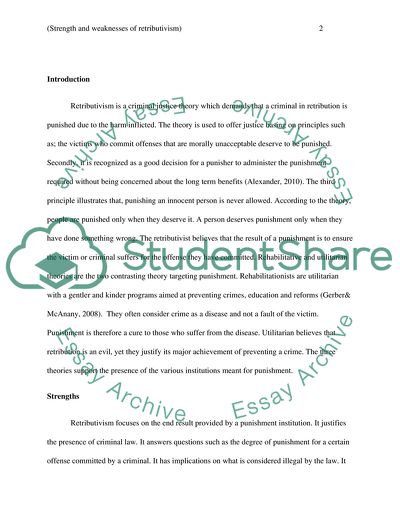Cite this document
(Strengths and Weaknesses of Retributivism Coursework, n.d.)
Strengths and Weaknesses of Retributivism Coursework. https://studentshare.org/law/1845261-critically-analyse-and-discuss-the-strengths-and-weaknesses-of-retributivism
Strengths and Weaknesses of Retributivism Coursework. https://studentshare.org/law/1845261-critically-analyse-and-discuss-the-strengths-and-weaknesses-of-retributivism
(Strengths and Weaknesses of Retributivism Coursework)
Strengths and Weaknesses of Retributivism Coursework. https://studentshare.org/law/1845261-critically-analyse-and-discuss-the-strengths-and-weaknesses-of-retributivism.
Strengths and Weaknesses of Retributivism Coursework. https://studentshare.org/law/1845261-critically-analyse-and-discuss-the-strengths-and-weaknesses-of-retributivism.
“Strengths and Weaknesses of Retributivism Coursework”. https://studentshare.org/law/1845261-critically-analyse-and-discuss-the-strengths-and-weaknesses-of-retributivism.


